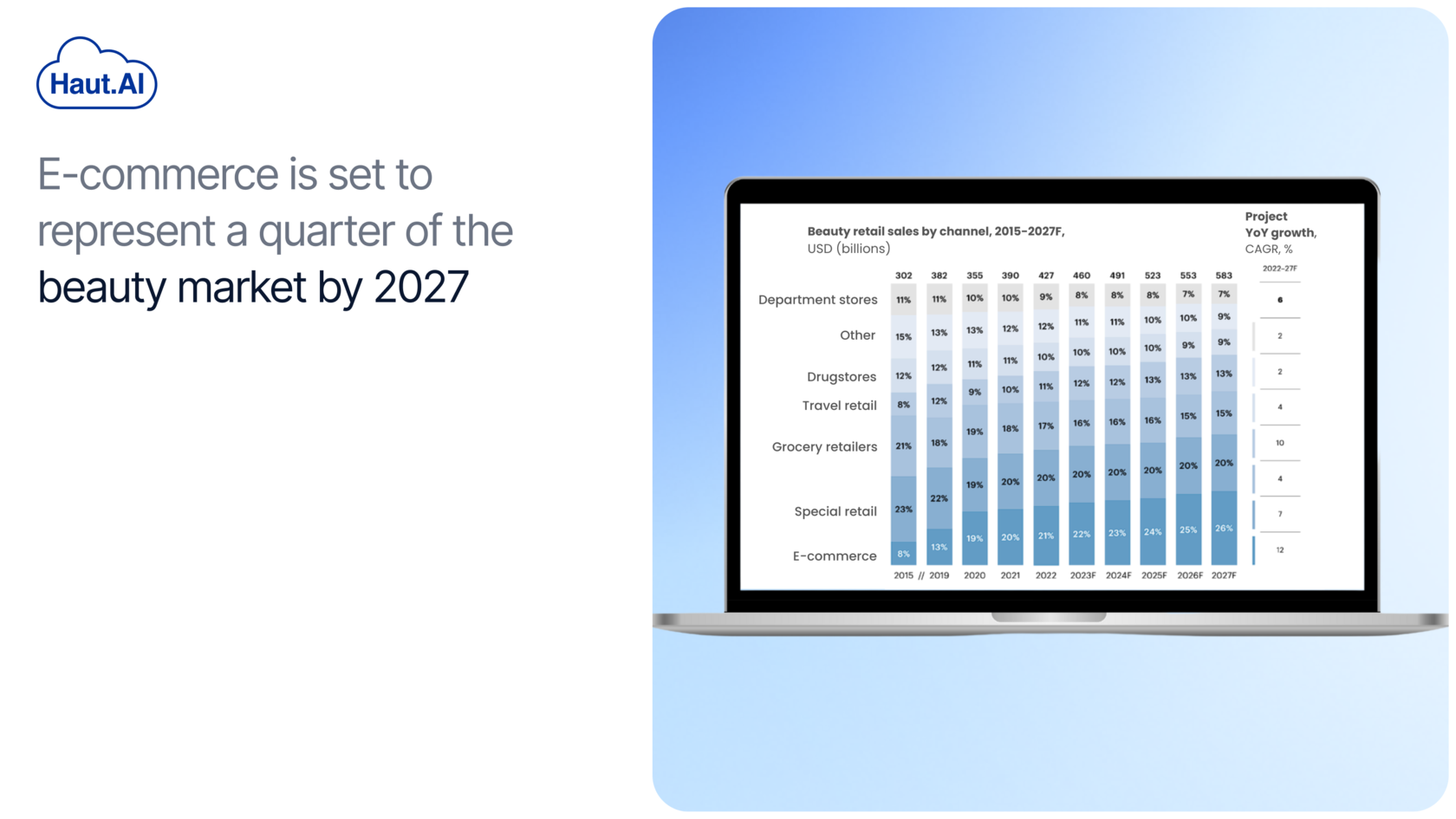In the dynamic online beauty space, capturing customers’ attention requires an innovative and strategic approach. The skincare market is not only highly competitive but also saturated with brands constantly launching the latest and greatest products.
According to McKinsey and Business of Fashion’s 2023 “The State of Fashion Beauty” report, online skincare sales will continue to grow at pace, creating lots of opportunities for brands that adapt to the digital landscape.
According to McKinsey and Business of Fashion’s 2023 “The State of Fashion Beauty” report, online skincare sales will continue to grow at pace, creating lots of opportunities for brands that adapt to the digital landscape.

Today, skincare brands need more than exceptional products and high-profile celebrity collabs. They must tackle the core challenges that online retail presents. In this short article, we’ll dive into the unique challenges faced by brands competing in the complex world of skincare e-commerce.
With an abundance of options available, capturing the spotlight can be challenging. While industry buzzwords like “active ingredients” and “clean beauty” have their place, these trends come and go quickly. For long-lasting success, identifying a solid unique selling proposition (USP) is essential. An articulate and compelling narrative must be crafted around core values, creating a distinct identity that resonates with consumers. This means taking the time to understand market trends and the target audience’s unique needs and preferences.
Once the USP has grabbed their attention, brands should strive for a seamless online shopping experience via their website. Selling skincare products online presents a unique challenge in that consumers cannot physically test or experience the product on their skin. Online retailers must utilize excellent copywriting, highly accurate images and informative videos to convey the product’s texture, consistency, color and scent. Innovative tech solutions involving AI-driven skincare quizzes, virtual consultations, and personalized product recommendations are an essential and almost expected part of recreating that “in-person” experience online.
But the job isn’t done when the customer makes a purchase. Beauty brands must carefully manage their online and social media presence to effectively reach, engage and reengage their target audience, all amid changing algorithms and trends. Beyond a robust website and seamless shopping experience, this means effectively managing online reviews and customer queries, addressing negative feedback, and streamlining the returns process to build trust and encourage loyalty.
There’s no doubt that the opportunities in skincare e-commerce will only continue to grow. With some creativity and the help of AI technology in the form of personalized recommendations and virtual interactions, skincare brands can replicate—and even improve upon—their in-store sales strategy for online customers.
With an abundance of options available, capturing the spotlight can be challenging. While industry buzzwords like “active ingredients” and “clean beauty” have their place, these trends come and go quickly. For long-lasting success, identifying a solid unique selling proposition (USP) is essential. An articulate and compelling narrative must be crafted around core values, creating a distinct identity that resonates with consumers. This means taking the time to understand market trends and the target audience’s unique needs and preferences.
Once the USP has grabbed their attention, brands should strive for a seamless online shopping experience via their website. Selling skincare products online presents a unique challenge in that consumers cannot physically test or experience the product on their skin. Online retailers must utilize excellent copywriting, highly accurate images and informative videos to convey the product’s texture, consistency, color and scent. Innovative tech solutions involving AI-driven skincare quizzes, virtual consultations, and personalized product recommendations are an essential and almost expected part of recreating that “in-person” experience online.
But the job isn’t done when the customer makes a purchase. Beauty brands must carefully manage their online and social media presence to effectively reach, engage and reengage their target audience, all amid changing algorithms and trends. Beyond a robust website and seamless shopping experience, this means effectively managing online reviews and customer queries, addressing negative feedback, and streamlining the returns process to build trust and encourage loyalty.
There’s no doubt that the opportunities in skincare e-commerce will only continue to grow. With some creativity and the help of AI technology in the form of personalized recommendations and virtual interactions, skincare brands can replicate—and even improve upon—their in-store sales strategy for online customers.






